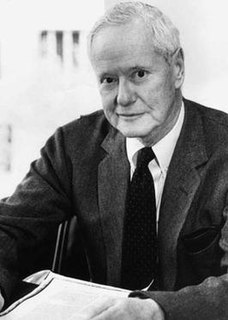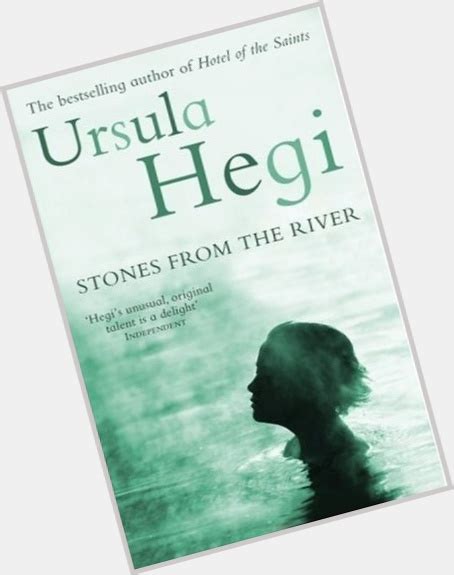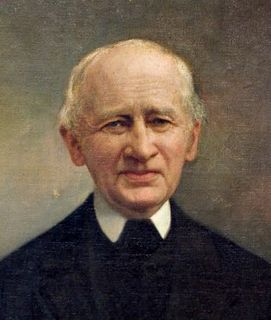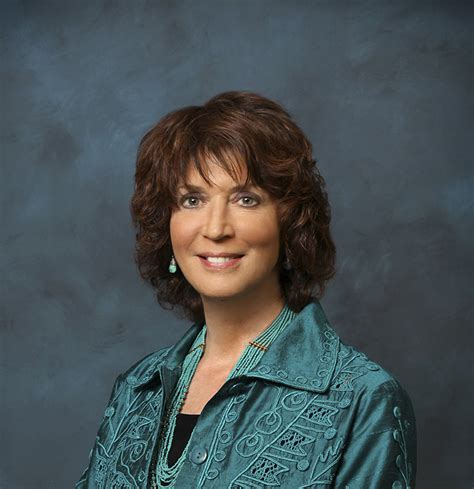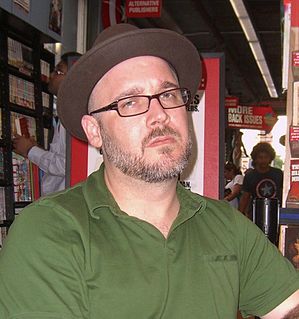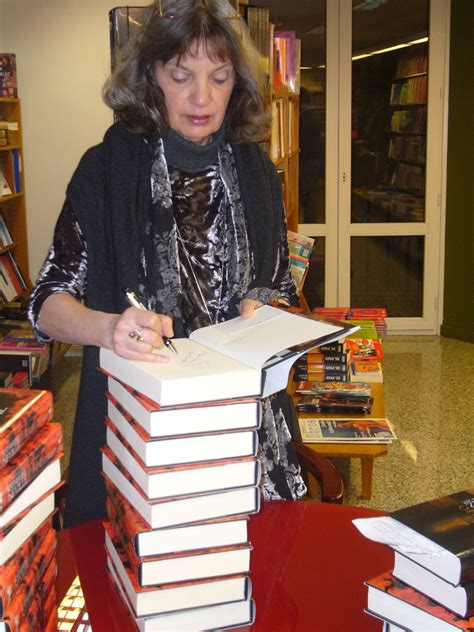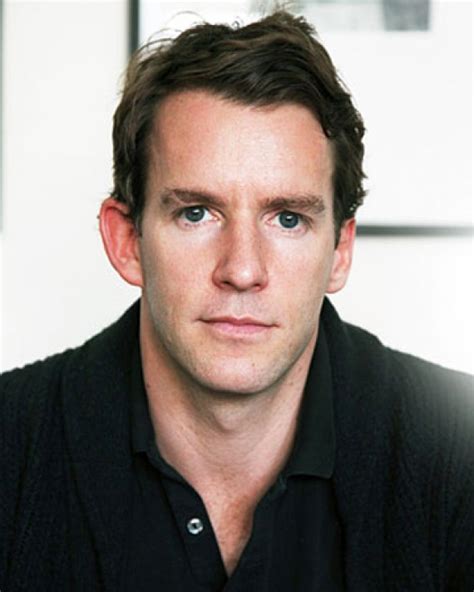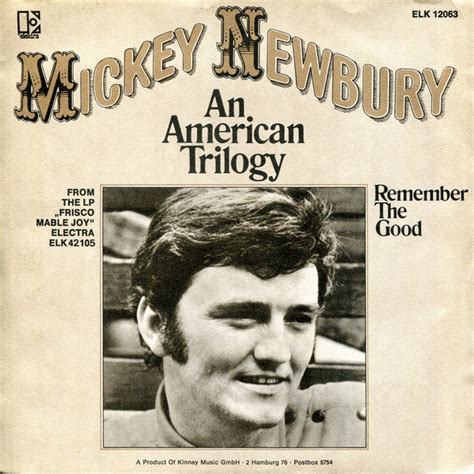Top 1200 Published Quotes & Sayings - Page 20
Explore popular Published quotes.
Last updated on April 16, 2025.
Into whatsoever houses I enter, I will enter to help the sick, and I will abstain from all intentional wrong-doing and harm, especially from abusing the bodies of man or woman, bond or free. And whatsoever I shall see or hear in the course of my profession, as well as outside my profession in my intercourse with men, if it be what should not be published abroad, I will never divulge, holding such things to be holy secrets.
That night Demosthenes published a scathing denunciation of the population limitation laws. People should be allowed to have as many children as they like, and the surplus population should be sent to other worlds, to spread mankind so far across the galaxy that no disaster, no invasion could ever threaten the human race with annihilation. "The most noble title any child can have," Demosthenes wrote, "is Third.
Only when he has published his ideas and findings has the scientist made his contribution, and only when he has thus made it part of the public domain of scholarship can he truly lay claim to it as his own. For his claim resides only in the recognition accorded by peers in the social system of science through reference to his work.
Well, Thanksgiving we'll all gather at my house for dinner and we usually do Christmas at Beau's house. My mom is still feisty and kicking. She's 92. I saw her last night and she published a book at 90. It's a wonderful book called "You Caught Me Kissing" and it's basically love-poems that she wrote for my dad. It's more than that, it's a wonderful book.
I think that Hick was in love with Eleanor, and Eleanor was in love with Hick. I think it's very important to look at the letters that are in my book, because unlike some of the recent published letters, I have both the personal and the political. And their relationship is about ardor. It's about fun. And it's also about politics.
One thing that we learned that we published on our blog post is that uniformly, men lie about their height by almost exactly two inches. So if you look at a plot of census bureau data on the distribution of men's heights in the U.S. and you plot men's heights on OKCupid, it is exactly shifted two inches to the left.
I wrote an article not so long ago that was published in the Los Angeles Times, and I think I titled it "Movies vs. History." But I think they had another title for it. I got sort of sick and tired of seeing movies that got picked apart by people because they had taken dramatic or poetic license and I said "These people don't understand the distinctions."
Sir, The Planet [Neptune] whose position you marked out actually exists. On the day on which your letter reached me, I found a star of the eighth magnitude, which was not recorded in the excellent map designed by Dr. Bremiker, containing the twenty-first hour of the collection published by the Royal Academy of Berlin. The observation of the succeeding day showed it to be the Planet of which we were in quest.
A writer always wears glasses and never combs his hair. Half the time he feels angry about everything and the other half depressed. He spends most of his life in bars, arguing with other dishevelled, bespectacled writers. He says very 'deep' things. He always has amazing ideas for the plot of his next novel, and hates the one he has just published.
Red has been praised for its nobility of the color of life. But the true color of life is not red. Red is the color of violence, or of life broken open, edited, and published. Or if red is indeed the color of life, it is so only on condition that it is not seen. Once fully visible, red is the color of life violated, and in the act of betrayal and of waste.
With Head Off & Split, Nikky Finney establishes herself as one of the most eloquent, urgent, fearless and necessary poets writing in America today. What makes this book as important as anything published in the last decade is the irresistible music, the formal dexterity and the imaginative leaps she makes with metaphor and language in these simply stunning poems. This is a very, very important achievement.
It was only after two years' work that it occurred to me that I was a writer. I had no particular expectation that the novel would ever be published, because it was sort of a mess. It was only when I found myself writing things I didn't realise I knew that I said, 'I'm a writer now.' The novel had become an incentive to deeper thinking. That's really what writing is—an intense form of thought.
This comes from Mike Gonzalez at the Daily Signal: [ Howard] Zinn's history "set the stage for the grievance mongering that passes for history classes today, and is still widely used. It has sold over 2 million copies since it was first published in 1980 and continues to sell over 100,000 copies a year because it is required reading at many of our high schools and colleges. That's a lot of young minds."
As Luxenberg's work has only recently been published we must await its scholarly assessment before we can pass any judgements. But if his analysis is correct then suicide bombers, or rather prospective martyrs, would do well to abandon their culture of death, and instead concentrate on getting laid 72 times in this world, unless of course they would really prefer chilled or white raisins, according to their taste, in the next.
I was starting to wonder if I was ready to be a writer, not someone who won prizes, got published and was given the time and space to work, but someone who wrote as a course of life. Maybe writing wouldn't have any rewards. Maybe the salvation I would gain through work would only be emotional and intellectual. Wouldn't that be enough, to be a waitress who found an hour or two hidden in every day to write?
I would change very little because I have been very, very fortunate. A lot of things fell into place for me simply by happenstance. When that happens you don't really want to change anything, even if you could. Editorially my regrets are few and for the most part minor. I look back on my first published book and think I held on to it too long, babied it too long.
I am committed now to one thing: lyric sequences. I want the intensity of lyric, but the scope and arc of narrative. so, I think I'll just write sequences for the foreseeable (the Beloved sequence doesn't have a 'plot' so I can just keep adding poems to it, it's like a giant bag I can just put beloved lyrics into - I think there are about 300 of them i've published by now).
Time is a function of impact. The longer a book of mine has been in print, the greater its impact seems to be as people absorb and digest my ideas. I am especially proud of The Change Master: Innovation and Entrepreneurship in the American Corporation, first published in 1983, because it raised questions and addressed issues at a time when so many great changes were occurring in our society, indeed throughout the world.
Me writing the book and the subsequent interactions that we had were actually the cap on that experience. We were still in this weird purgatory about it when I published the book. When I gave them the galleys and what ensued after that, then I understood a lot more about our relationships and what the experience meant to them. I'd never wanted to know what they thought about it at all.
Why is it that Serge Lange's Linear Algebra, published by no less a Verlag than Springer, ostentatiously displays the sale of a few thousand copies over a period of fifteen years, while the same title by Seymour Lipschutz in the The Schaum's Outlines will be considered a failure unless it brings in a steady annual income from the sale of a few hundred thousand copies in twenty-six languages?
It's an ethical pact I've made with myself and with the reader - not to invent. And when I can't remember, I say I can't remember. I'm just appalled by the memoirs published by people who regurgitate dialogue, conversations from when they were small children, and they go on for three or four pages. I can't even remember what we said to each other ten minutes ago! How can I remember what was said sixty years ago? It's not possible.
The Booker thing was a catalyst for me in a bizarre way. It’s perceived as an accolade to be published as a ‘literary’ writer, but, actually, it’s pompous and it’s fake. Literary fiction is often nothing more than a genre in itself. I’d always read omnivorously and often thought much literary fiction is read by young men and women in their 20s, as substitutes for experience.
There's been real hostility toward political poetry in the U.S., hostility or, at best, incomprehension. I'm speaking of those who have institutional power over what gets published, over grants andprizes and reviewing. Most of them, though not all, arewhite and male. But even as American society is unravelling, becoming more violent and punitive, wonderful political poetshave been emerging.
I don't know what started me, I just wrote poetry from the time was quite small. I guess I liked nursery rhymes and I guess I thought I could do the same thing. I wrote my first poem, my first published poem, when I was eight-and-a-half years old. It came out in The Boston Traveller and from then on, I suppose, I've been a bit of a professional.
A reader kindly pointed out to me recently that most of the quotes I include are by men. And it's true. Personally, I don't even consider whether the author is male or female, nor even care much who the author is - what's significant is the message. Of course, women are equally capable of great insights, however in our culture it's not so long ago that women could not even be published
I had been reading about [John] Calvin for years and had been studying the English Renaissance for many more years, and it had never occurred to me to think of them together. I learned that Calvin was the most widely read writer in England in Shakespeare's lifetime. He was translated and published in many editions.
Distractions are everywhere. And with the always-on technologies of today, they take a heavy toll on productivity. One study found that office distractions eat an average 2.1 hours a day. Another study, published in October 2005, found that employees spent an average of 11 minutes on a project before being distracted. After an interruption it takes them 25 minutes to return to the original task, if they do at all.
There are still many writers out in the Bay, extraordinary writers like Gina Valdez, a poet who I just saw in Portland. We have young people like Eduardo Corral, who won the Yale Younger Poets Award. José Antonio Rodriguez, published by Luis Rodriguez. But there are only a few of us who are paid attention to in New York. There are legions behind us who are not.
I was a professional chess player in Romania, but only a small-time master. When I came to France, I continued playing chess for many years: I played tournaments in numerous countries with mixed results. I wrote and published a book - La Défense Alekhine and translated two others from Russian. I taught chess in schools; I earned more money through chess than through literature.
[There] are cases where there is no dishonesty involved but where people are tricked into false results by a lack of understanding about what human beings can do to themselves in the way of being led astray by subjective effects, wishful thinking or threshold interactions. These are examples of pathological science. These are things that attracted a great deal of attention. Usually hundreds of papers have been published upon them. Sometimes they have lasted for fifteen or twenty years and then they gradually die away.
From the essay "Twenty-five Things People Have a Shocking Capacity to Be Surprised by Over and Over Again" 1. Journalists sometimes make things up. 2. Journalists sometimes get things wrong. 3. Almost all books that are published as memoirs were initially written as novels, and then the agent/editor said, This might work better as a memoir. 6. Freedom of the press belongs to the man who owns one.
The fiction I've written and published is certainly inflected by the work of authors I was reading or translating at the time. One of my methods for developing my own voice in fiction, a process I am taking very slowly and deliberately, is through these very intense encounters with certain writers. Strength and power in fiction is being able to resist these intoxicating voices, recognizing that they are the signatures of other writers and not one's own.
I cannot disagree with you that having something like 500 economists is extremely unhealthy. As you say, it is not conducive to independent, objective research. You and I know there has been censorship of the material published. Equally important, the location of the economists in the Federal Reserve has had a significant influence on the kind of research they do, biasing that research toward noncontroversial technical papers on method as opposed to substantive papers on policy and results
The New York Times published a full-page hit piece with another claim from an individual who has been totally discredited based on the many many emails and letters she has sent to our office over the years looking for work. The New York Times refused to use the evidence that we presented. If they used it, if they would have looked, they would have said, there's no story here.
I'm grateful for the likes of Kundera, Murnane, Markson, Berger, and, in his recent work, Coetzee. But no matter how celebrated they are, critics still consider them askance. Elizabeth Costello, for example, is a great novel, but it got quite a critical panning when it was published. The complaint was that it was simply a book of speeches, without the machinery of conventional fiction. Markson's books are compilations of facts and alleged facts, very artfully.
Is there a gender gap in the music industry? It is true that there are more professional male music creators than female. For some reason, it's taking a lot longer in music than in literature and the visual arts to reach equilibrium. It was almost acceptable by the 19th century for female writers to be published, yet it's only in the last couple of decades, since about 1980, that historical female composers have really emerged.
I think the number of books published by Mr. Disney has nothing to do with whether or not he is bringing literature to children. That judgment has got to be based on quality rather than quantity. It's the same old problem that continually plagues American culture. I would rather have children playing their own games out of doors in the sunlight than getting the misrepresentation of literature as given by Walt Disney.
With comics, you can only really learn what you're doing wrong or what works best when you see your work published. I've been publishing comics since my 20s, and still, when I flip through any of my new comics, I still only see the things that I wish I'd done better. But that's how you learn, by seeing it.
If you want to be traditionally published, then you most likely want to get a literary agent. To sign with an agent, you need to send them a query letter, but agents can get up to 20,000 query letters a year. With numbers like that, it helps to get in front of agents with every opportunity you have.
I love cookbooks for completely different reasons. I love 'The Harry's Bar Cookbook' and Marco-Pierre White's 'White Heat' for their feel. For pure learning, Gray Kunz wrote a great cookbook, 'The Elements of Taste', published in 2001. The first time I read Charlie Trotter's, the Chicago chef's first cookbook, I was blown away.
As a young man just beginning to publish some short fiction in the t&a magazines, I was fairly optimistic about my chances of getting published; I knew that I had some game, as the basketball players say these days, and I also felt that time was on my side; sooner or later the best-selling writers of the sixties and seventies would either die or go senile, making room for newcomers like me.
Write. Remember, people may keep you (or me) from being a published author but no one can stop you from being a writer. All you have to do is write. And keep writing. While you’re working at a career, while you’re raising children, while you’re trout fishing--keep writing! No one can stop you but you.
Wildlife was the only thing we've written together with Paul Dano. It's based on a book by this author Richard Ford, who just published a memoir about his family that's really wonderful. Paul fell in love with his book, and we optioned it ourselves, and he took a first pass at writing it. He asked me for notes, and then our note session devolved into an argument really quickly.
The first song I wrote and had published was titled "Just As Long As That Someone Is You". It was written in 1959, and recorded in 1965 by Jimmy Ellege. I started writing songs because I wanted something of my own to sing. I, at that time, was not aware that the songs I heard on the radio were not written by the folks singing them. I had always loved poetry, and found it easy to integrate a melody with poetry.
I very early caught on that the editor of Cincinnati Post had something specific in mind that he was looking for, and I tried to accommodate him in order to get published. I would turn out rough idea after rough idea, and he would veto eighty percent of them. I pretty much prostituted myself for six months but I couldn't please him, so he sent me packing.
If one writing contributed more than any other to the framework in which this work Sowell's Knowledge and Decisions developed, it would be an essay entitled 'The Use of Knowledge in Society,' published in the American Economic Review of September 1945, and written by F. A. Hayek . . In this plain and apparently simple essay was a deeply penetrating insight into the way societies function and malfunction, and clues as to why they are so often and so profoundly misunderstood.
I remember everyone telling me I had to think positive when I was writing my first book. If I believed I could do it, then I could! If I pictured myself published, then it was going to happen! Which sounded great, except...could I do it? If I didn't think I could, was I doomed to fail? What if I was almost totally sure I would fail? I am here to tell you-what matters is sticking with it.
Another example of what I have to put up with from him. But there was a time I was mad at all my straight friends when AIDS was at its worst. I particularly hated the New Yorker, where Calvin [Trillin] has published so much of his work. The New Yorker was the worst because they barely ever wrote about AIDS. I used to take out on Calvin my real hatred for the New Yorker.
The literature now is so opaque to the average person that you couldn't take a science-fiction short story that's published now and turn it into a movie. There'd be way too much ground work you'd have to lay. It's OK to have detail and density, but if you rely on being a lifelong science-fiction fan to understand what the story is about, then it's not going to translate to a broader audience.
Quality. That's the first word, the one word that comes to mind when I think of the books published by Abrams. In a world where so many companies are willing to cut corners, to do things the easy way in order to enhance the bottom line, it's gratifying to know that there's one company that obviously takes such pride in its finished product, one company that can always be counted on to design and produce a book that is, itself, as much a work of art as the illustrations on its pages.
Literature cannot develop between the categories "permitted"—"not permitted"—"this you can and that you can't." Literature that is not the air of its contemporary society, that dares not warn in time against threatening moral and social dangers, such literature does not deserve the name of literature; it is only a facade. Such literature loses the confidence of its own people, and its published works are used as waste paper instead of being read. -Letter to the Fourth National Congress of Soviet Writers
Often vastly more important, international agreements are not routinely published in draft form or publicly debated, and civil society organizations and ordinary citizens often learn of important global institutional design decisions only after they have already been finalized and adopted. The only reliable way to be kept informed and to exert timely influence is by lobbying and paying the politicians and their negotiators.
I had published a co-edited book with Oxford a decade ago, my first book actually. Years later I found myself having lunch with Lori Stone, who was an editor at Oxford at that time. We connected at a conference and over the course of lunch she told me about a wonderful new series she had just developed called Understanding Research.


